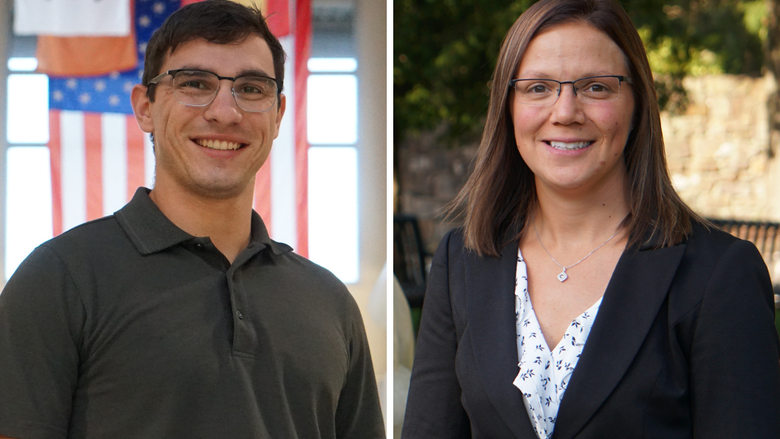Holocaust survivor Ben Lesser recently spoke with students at Penn State Hazleton about his experiences in several concentration camps, liberation and life in the United States.
HAZLETON, Pa. – Penn State Hazleton students heard a rare first-hand account of the horrors of the Holocaust from a survivor committed to teaching younger generations about tolerance despite his own painful experiences.
Ben Lesser recently spoke virtually to students from Professor of Sociology Michael Polgar’s Holocaust and Human Rights course. Polgar said after seeing Lesser speak previously, he invited him to talk with his class about the importance of remembering the Holocaust.
“First-person survivor eye-witness accounts are helpful in teaching and learning about the brutal and extensive crimes of the Holocaust,” Polgar said. “We can learn about resilience from survivors of all kinds.”
Lesser, 92, described in detail his grueling journey, beginning in 1942 with his escape from German-occupied Poland and eventual capture in Hungary, to his confinement and near-death experiences at four concentration camps.
“It was back-breaking work,” Lesser said.
After surviving a 250-mile death march across Germany, Lesser was liberated from the Dachau concentration camp in 1945. Sixteen years old and weighing just 65 pounds, he spent several months healing at a German monastery, he said.
Of his family of seven, Lesser and his older sister, Lola, were the only survivors.
Despite the tragic ordeal, Lesser said he never harbored any anger. "I was just happy to be alive,” he said.
Lesser became a U.S. citizen in 1953 and went on to establish a real estate company. Following his retirement, he founded a Holocaust remembrance foundation and authored a book about his life.
Lesser said he is determined to continue sharing his story to raise awareness of the Holocaust and teach students about compassion for human life.
“It is possible to let tragedy or trauma become a reason to stop living, but it’s also possible to live through extreme circumstances and commit to a life that has meaning. A life that matters,” Lesser said.
Polgar’s class will continue its discussions related to the Holocaust with another speaker at 9 a.m. Thursday, March 25. The class will welcome conductor Murray Sidlin and discuss the documentary, “Defiant Requiem,” which chronicles a musical performance by prisoners of a concentration camp.
For information on how to join the event through Zoom, email Polgar at [email protected].




